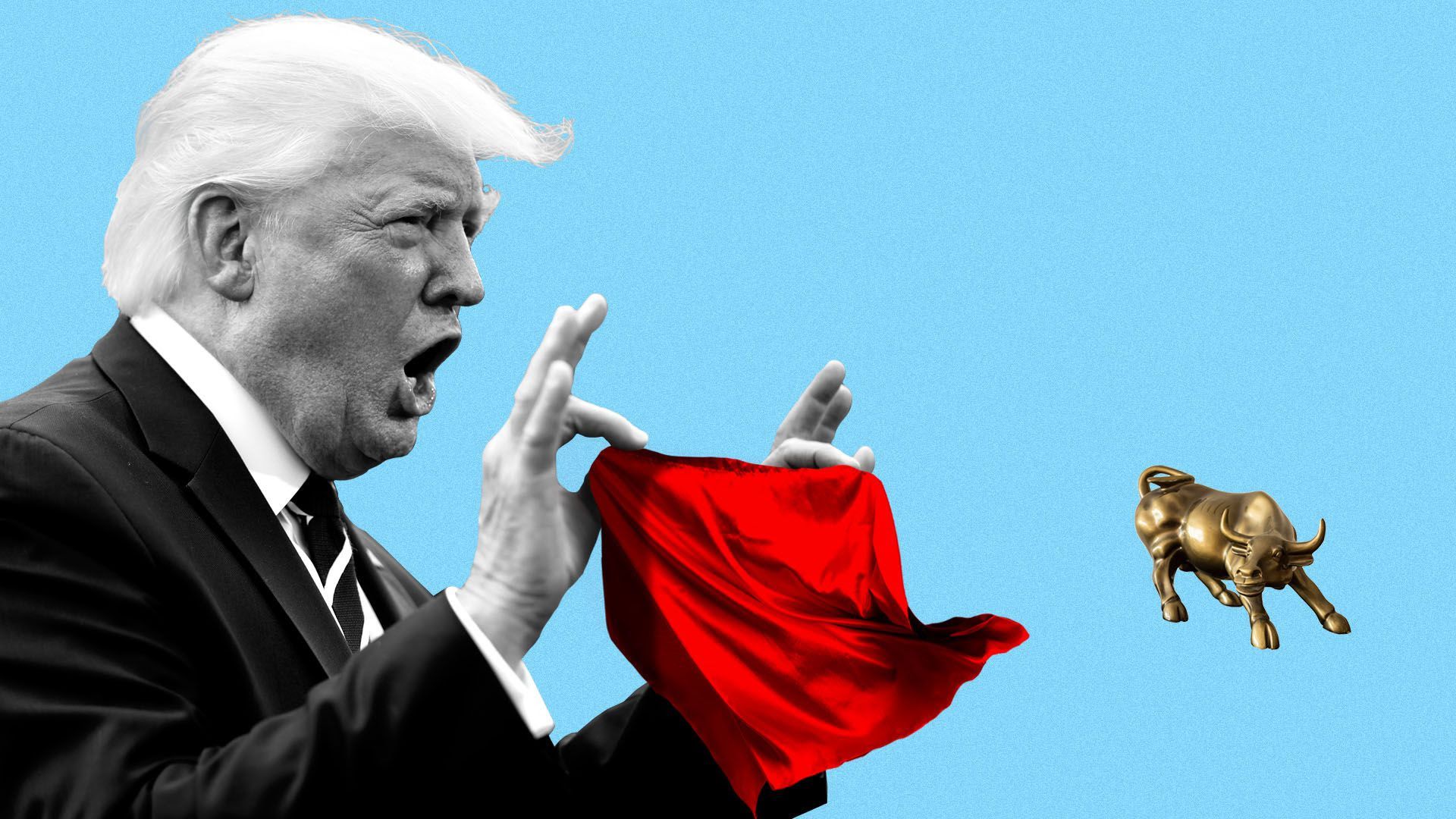The Trump administration has taken on mergers and acquisitions
Add Axios as your preferred source to
see more of our stories on Google.

Illustration: Sarah Grillo/Axios
President Trump is viewed by many on the left as a tool of big business, thanks largely to the 2017 tax cuts, but when it comes to corporate mergers and acquisitions, he's been more foe than friend.
The big picture: The administration has blocked, sued to block, or threatened to block big deals in a number of industry sectors. Sometimes it's been done on antitrust grounds. Sometimes on national security grounds. Sometimes, it seems, on gussied-up whim.
Why it matters: "Subject to regulatory approval" for decades was an M&A risk factor that merging companies disclosed as boilerplate. Today, however, it's rarely a foregone conclusion — and post-announcement analysis is as much about if a deal will be allowed to close as it is about price, product, financing, layoffs, or strategic coherence.
- In media, notable examples under Trump include DOJ seeking to block AT&T from buying Time Warner, Sinclair being blocked from buying Tribune Media, and the major divestiture requirements on T-Mobile's deal for Sprint.
- In healthcare, DaVita, Bristol-Myers Squibb, and CVS each were forced to make significant divestitures in order to gain approval for multi-billion dollar acquisitions.
- In tech, Broadcom was blocked from buying Qualcomm, Canyon Bridge from buying Lattice Semiconductor, and DraftKings from merging with FanDuel.
- In printing, Quad/Graphics Inc. and LSC Communications recently abandoned their planned merger due to federal opposition.
- In defense, Harris Corp. was forced to sell a night vision unit in order to merge with L3 Technologies, and Trump has publicly expressed unease with United Technologies' proposed deal for Raytheon.
Yes, but: Sometimes deals do close, but then are forced by U.S. regulators to be unwound. That's what happening right now with Pamplona Capital Management's 2018 purchase of a 47% stake in cybersecurity company Cofense (f.k.a. PhishMe) and Kunlun's 2016 purchase of dating app Grindr (although U.S. opposition appears to be softening).
- Speaking of Kunlun, the bar for Chinese takeovers of U.S. companies has been placed so high that they aren't really worth the attempt.
The bottom line: Trump's love of big things and distaste for regulation and judicial "activism" doesn't extend to M&A, where he seems reflexively opposed to big mergers and in favor of stricter rules and "activist" regulators.
Go deeper: One week of the not-normal presidency
